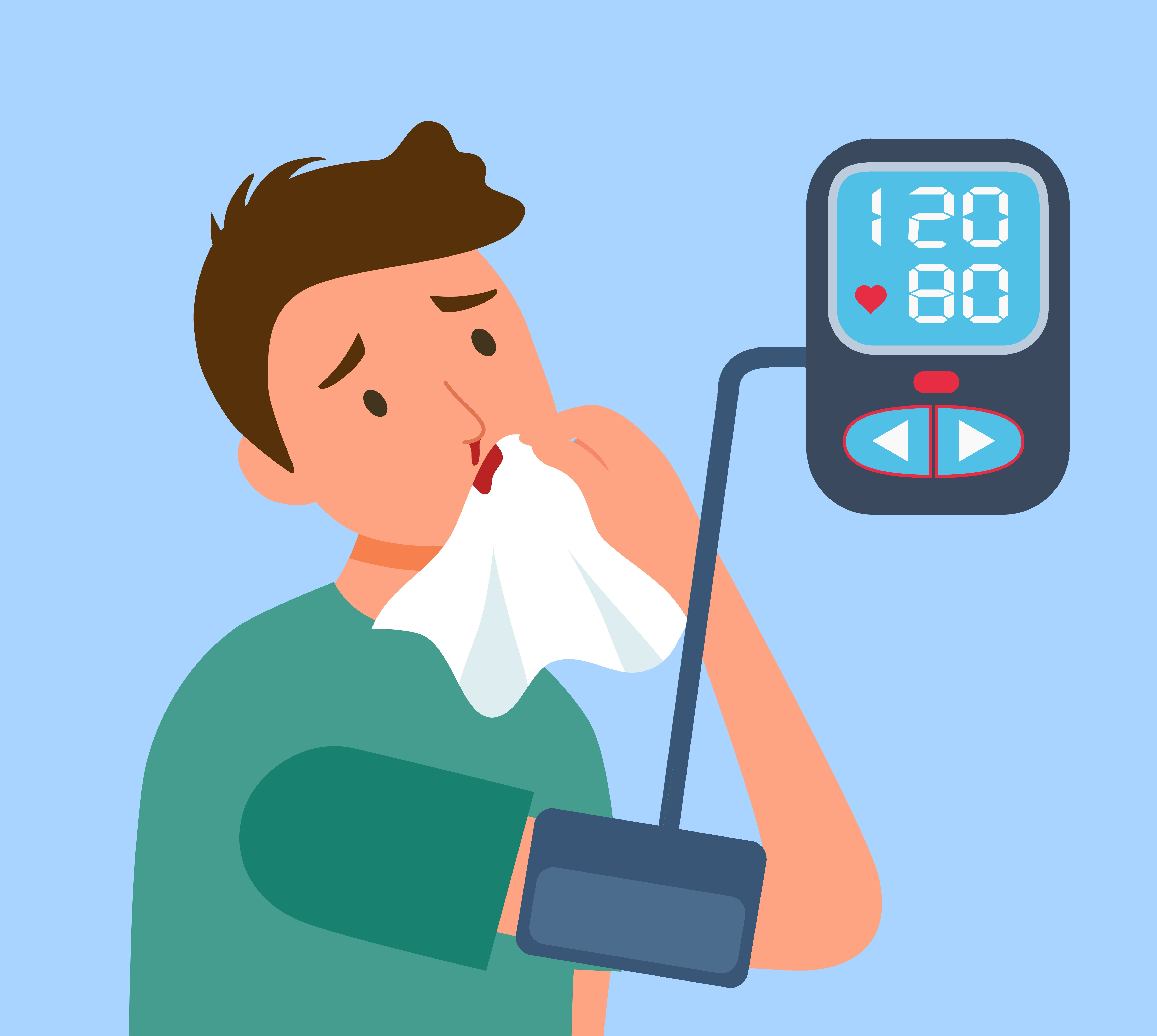While there have been multiple studies examining the relationship between blood pressure (BP) and nosebleeds, none have established a causal relationship.1-5 A handful of studies have found an association; however, all of these studies fail to account for possible confounding factors.
A 1972 analysis of data from the Health Examination Survey from 1960 to 1962 (n=6,672) examined the relationship between BP and self-reported symptoms including headache, nosebleed, tinnitus, dizziness, and fainting.2 There was no correlation between elevated BP and headache, nosebleed, or tinnitus. Dizziness was found slightly more often in people with high diastolic BP (DBP) (reported by 9.4% of those with DBP<90 mmHg vs 11.5% for DBP≥100 mmHg), and fainting occurred less often in people with higher blood pressure (reported by 24.4% of those with DBP<90 mmHg vs 15.8% for DBP≥100 mmHg; 24.4% for systolic BP <140 mmHg vs 16.5% for ≥160 mmHg).
A 2017 systematic review and meta-analysis of the association between hypertension and nosebleeds was performed on ten studies with 9,574 participants total.3 Only one study in the analysis had significant findings, and when it was removed from the analysis, no significant relationship was found.
A 2020 population cohort study from South Korea examined the association between hypertension and the incidence of nosebleeds.4 A sample of 35,749 individuals with hypertension were matched to a comparison cohort of 35,749 normotensive adults of similar sociodemographic characteristics. The incidence rate of participants who had a nosebleed during a hospital visit in the hypertension group was 1.95%, or 32.97 per 10,000 person-years (95% CI [30.57-35.51]) compared to 1.35%, or 22.76 per 10,000 person-years (95% CI [20.78-24.89]) in the comparison cohort. While there was an increased incidence of nosebleeds among those with hypertension, it’s unclear whether it’s attributable to an increased risk of nosebleeds or an increased risk of hospitalization as the study design only accounted for nosebleeds during hospital visits.
A 2009 study of 36 patients looked into the association between nosebleeds and severity of hypertension.5 Patients were grouped based whether they had stage 1, 2, or 3 hypertension, with average BPs for each group of 140/90 mmHg, 150/97 mmHg, and 172/123 mmHg. Over one year of follow-up, there was no difference between incidence of nosebleeds between the different severity groups.
Blood Pressure Elevation During Nosebleeds
While BP has not been found to have a causal relationship with nosebleeds, several studies have found that BP can be elevated in patients presenting with nosebleeds in the hospital setting.
A 2000 prospective, cross-sectional study compared the blood pressure of 213 patients presenting to the emergency department with a nosebleed to 213 sex and age matched outpatient controls.6 Patients with nosebleeds had significantly higher blood pressure values than controls (161/84 mmHg vs 144/75 mmHg, p<0.001). A similar 2002 study found that 271 patients presenting to the emergency department with a nosebleed had significantly higher blood pressure at presentation than 271 controls without active bleeding (165/85 mmHg vs 153/77 mmHg, p<0.001).7
References
- Kikidis D, Tsioufis K, Papanikolaou V, Zerva K, Hantzakos A. Is epistaxis associated with arterial hypertension? A systematic review of the literature. European Archives of Oto-Rhino-Laryngology. 2014;271:237-243.
- Weiss NS. Relation of high blood pressure to headache, epistaxis, and selected other symptoms: The United States Health Examination Survey of Adults. New England Journal of Medicine. 1972;287(13):631-633.
- Min HJ, Kang H, Choi GJ, Kim KS. Association between hypertension and epistaxis: systematic review and meta-analysis. Otolaryngology–Head and Neck Surgery. 2017;157(6):921-927.
- Byun H, Chung JH, Lee SH, Ryu J, Kim C, Shin J-H. Association of Hypertension With the Risk and Severity of Epistaxis. JAMA Otolaryngology–Head & Neck Surgery. 2021;147(1):34-40. doi:10.1001/jamaoto.2020.2906
- Knopfholz J, Lima-Junior E, Précoma-Neto D, Faria-Neto JR. Association between epistaxis and hypertension: a one year follow-up after an index episode of nose bleeding in hypertensive patients. International journal of cardiology. 2009;134(3):e107-e109.
- Herkner H, Laggner AN, Müllner M, et al. Hypertension in patients presenting with epistaxis. Ann Emerg Med. Feb 2000;35(2):126-30. doi:10.1016/s0196-0644(00)70131-4
- Herkner H, Havel C, Müllner M, et al. Active epistaxis at ED presentation is associated with arterial hypertension. Am J Emerg Med. Mar 2002;20(2):92-5. doi:10.1053/ajem.2002.31577


.png)
